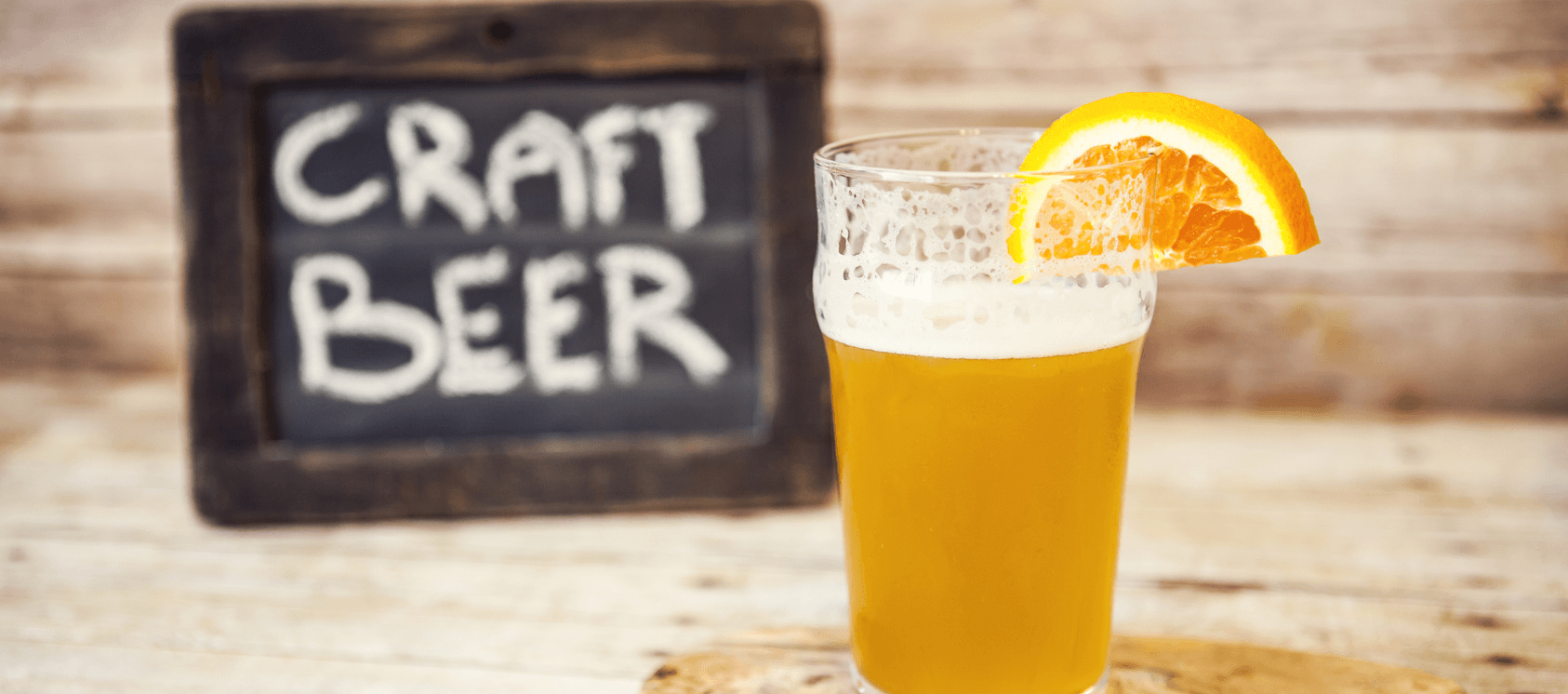
by Jonathan Schmig
April 16, 2015
A recent trademark dispute over a craft beer name has shined a light on a number of important legal issues facing small breweries in the U.S.
Seattle-based microbrewery Peddler Brewing Company had been selling a popular beer they called, simply, “Tangerine Wheat.” The brewery has been around for about two years, and is comprised of a grand total of three owner/employees. When Dave Keller, co-owner of Peddler, received a cease-and-desist letter, however, the Tangerine Wheat was in trouble.
The letter was sent by Lost Coast, a brewery based in Eureka, California (a coastal city nearer the Oregon border than San Francisco). Unlike Peddler, Lost Coast is one of the largest breweries in the nation (ranked 33rd according to its website); it distributes to over twenty states, in addition to Puerto Rico and Canada. Contrast this with Peddler’s distribution circle—a heart 15-mile radius, or, as Keller puts it, “as far as [my brother] is willing to drive.”
Lost Coast also had a beer called “Tangerine Wheat,” and so they sent a letter to Peddler asserting rights in the name (based on prior use) and requesting that Peddler immediately cease use of the name. The letter stated that Lost Coast had expended “substantial sums in promotional efforts to create a distinctive identity” for the product, and that “Tangerine Wheat” was, as a result, a “well-recognized mark” owned by Lost Coast. Thus, Peddler’s use of that name, they claimed, constituted “unauthorized use.”
Rather than fight it with costly litigation, Keller decided to oblige the California brewery and changed the name of his brewery’s beer from “Tangerine Wheat” to “Tangerine Hefeweizen.” Problem solved, no further action necessary, all parties happy. Keller even described the dispute as “validation.”
But there are any number of issues brought up by this situation. First and foremost is, did Lost Coast really have the right to claim trademark ownership over a name for a beer like “Tangerine Wheat”? As Keller himself put it, “The name tangerine wheat to us describes exactly what the beer is. It’s a wheat, brewed with tangerine. We never even thought that could possibly be trademarked.”
And he’d have a pretty solid case for that, if this had actually been litigated. According to the Abercrombie spectrum (a system of classifying the strength of word marks, based on a 1976 case), this “Tangerine Wheat” is at best “merely descriptive” (in which case trademark protection may only be granted if you can show “secondary meaning”), or alternatively “generic” (no protection, period). “Secondary meaning” basically just means that the public associates the name with you. But, importantly, that doctrine—along with all of trademark, really—is limited geographically.
This is to say that, if the court gave them the benefit of the doubt and classified their beer name as “merely descriptive,” Lost Coast would have to prove that people in Seattle associate the name “Tangerine Wheat” with Lost Coast. Given that the cease-and-desist letter they sent to Peddler made no reference to any registered trademark (which is okay, in that the U.S. trademark system protects even unregistered marks, but is also telling, in that such a large company would probably have little reason not to file for a trademark), there seems to be a pretty strong case for Peddler to claim rights in using such a descriptive term.
Of course, the biggest problem in pursuing defense would be cost. While the craft beer industry is growing (there were fewer than 100 in 1984, compared with the nearly 3,500 in 2014), this doesn’t mean that every craft brewer has money raining in. Most small breweries struggle to stay afloat, against the tiny minority of major breweries that dominate the market. If competitors are entering the industry at a rate of ten a week, then a three-man brewery like Peddler probably wants to avoid costly litigation even more than others would. Add to all of this the fact that Washington ranks #2 in total breweries in the state (who’s #1? California, of course), and the outcome of this dispute becomes even more obvious.
Peddler isn’t the only one who’s come under fire recently, though. In the Bay Area, a small, family-owned brewery called Fifty Fifty introduced a beer a few years ago called “BART” (which apparently stands for “Barrel Aged Really Tasty”). This led to a dispute with the Bay Area Rapid Transit, who claimed that the use of “BART” was confusingly similar and that they had to stop. Technically speaking, it doesn’t matter that “beer” and “transit” are not in any way similar. If the public would get confused as to the source (i.e., think they both come from the same producer), then there is grounds for trademark action. However, the Fifty Fifty brewery has decided not to cave. Says the owner: “I have no interest in fighting anybody, especially a large organization like that, but we’re also not going to give up.” The BART beer is set to hit Bay Area shelves in May of this year.
Similarly (or perhaps not), Colorado-based brewery Oskar Blues has come into contact several times with potential trademark issues. When they sought to unveil their “Gordon Knight” beer (in remembrance of a late friend of Oskar Blues founder), Gordon Biersch, a California-based brewery, took exception, fearing that the names would cause confusion. The owners of the two breweries had a “quick and amenable conversation,” after which Oskar Blues decided to change the name to “G-Knight.” Then, in an unrelated instance, Oskar Blues wanted to unveil a new beer but was worried that it might infringe one of (fellow Colorado-based) Left Hand Brewery’s marks. So the owner called Left Hand Brewery, the two hosted a party to facilitate a discussion, and both agreed that no issues would be raised, so Oskar Blues went forward.
The point is that, for many small breweries, avoiding costly litigation is the ideal, even when you can be relatively assured of your would-be success in the courts. But there’s a fine line between “protecting your intellectual property” and “bullying the little guy,” so some breweries opt to take a stand even if it does mean that litigation will ensue.
The craft beer industry isn’t going anywhere. In 2014, the craft beer market was worth $19.6B, about a fifth of the total beer market in the U.S., representing a 22% dollar sales growth. Many breweries are dealing with potential trademark issues by coming up with increasingly clever names for their beers. But one can still only expect that these disputes will continue to populate the industry.
Topics: Trademark, Trademark Disputes










